Morning Eye Candy: Lunch Break
Posted in Photography on October 8 2013, by Ann Rafalko
Lunchtime is for the birds in the Ruth Rea Howell Family Garden.
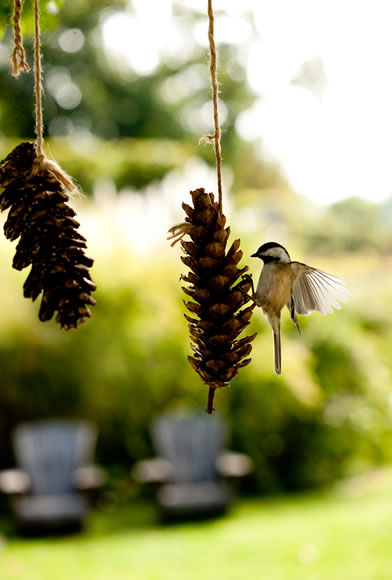
Photo by Ivo M. Vermeulen
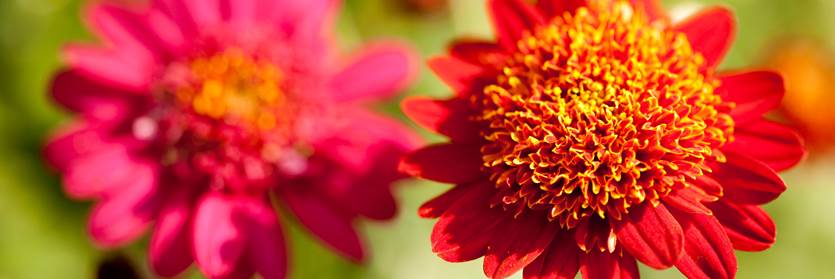
Inside The New York Botanical Garden
Posted in Photography on October 8 2013, by Ann Rafalko
Lunchtime is for the birds in the Ruth Rea Howell Family Garden.

Photo by Ivo M. Vermeulen
Posted in Photography on October 5 2013, by Ann Rafalko
This pretty lady has been posing for the paparazzi in the Perennial Garden all week. Join our free weekly Bird Walk today and you might have the chance to see her, too.
Posted in Wildlife on August 21 2013, by Matt Newman
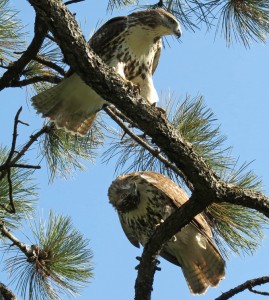 Pat Gonzalez is back this week with a fresh highlight feel from her adventures in the Garden, something I always eat up. As both a guest and a Visitor Services Attendant with the NYBG, Pat has spent the past five years documenting the lives of our raptor residents through the lens of her camera, creating a timeline of activity among the Great-horned Owls, Red-tailed Hawks, Cooper’s Hawks, Kestrels, and other winged wildlife that crosses her path. While I’m sure she’ll laugh off the comparison, I like to think of her as our very own Jane Goodall of the bird world.
Pat Gonzalez is back this week with a fresh highlight feel from her adventures in the Garden, something I always eat up. As both a guest and a Visitor Services Attendant with the NYBG, Pat has spent the past five years documenting the lives of our raptor residents through the lens of her camera, creating a timeline of activity among the Great-horned Owls, Red-tailed Hawks, Cooper’s Hawks, Kestrels, and other winged wildlife that crosses her path. While I’m sure she’ll laugh off the comparison, I like to think of her as our very own Jane Goodall of the bird world.
Debussy’s “Clair de Lune” is a nice touch, I think, that highlights the streamlined elegance of these birds. Though a brief look back into Pat’s Plant Talk postings will show you just how well it belies their hilarious clumsiness at times. There’s something about seeing a young hawk divebomb a park bench in its efforts to figure out hunting that I can’t help but laugh over.
For the birders and animal lovers out there, Debbie Becker’s long-running Bird Walk returns from its summer hiatus on Saturday, September 7, giving you ample time to prep your notebooks, binoculars, and cameras for some time wandering the Garden. It’ll go a long way toward helping you understand the joy that Pat feels each time she happens across one of her feathered friends.
Photo and video by Patricia Gonzalez.
Posted in Around the Garden on May 22 2013, by Patricia Gonzalez
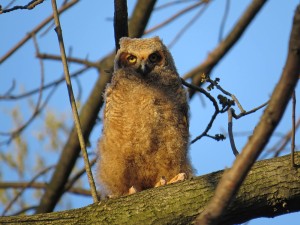 Although I have been photographing wildlife at The New York Botanical Garden since 2008, March 17th, 2012 was my last sighting of a Great-horned Owl. Since that time, during my frequent forays into the Thain Family Forest I could clearly hear them hooting, but have had zero luck in spotting them. But then this April, they made their reappearance when it became clear that one of the female owls had hatched two owlets.
Although I have been photographing wildlife at The New York Botanical Garden since 2008, March 17th, 2012 was my last sighting of a Great-horned Owl. Since that time, during my frequent forays into the Thain Family Forest I could clearly hear them hooting, but have had zero luck in spotting them. But then this April, they made their reappearance when it became clear that one of the female owls had hatched two owlets.
Posted in Programs and Events on February 15 2013, by Matt Newman
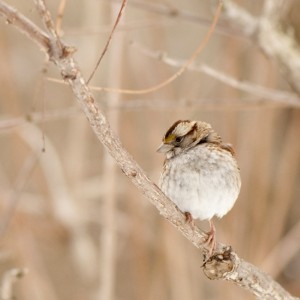 Whether you’re binocular-savvy or just looking to lock down your birdwatching game, this is your weekend! And thanks to President’s Day, it’s the perfect opportunity to take part in the Great Backyard Bird Count, if only because you’ll have three straight days to join us at the NYBG. Winter is undeniably the best time of year to see our feathered friends on the wing, owing to the barren branches and annual mating habits of the raptors, songbirds, and waterfowl that call our neck of the Bronx home. So get off your couch, strap on some boots, and join up!
Whether you’re binocular-savvy or just looking to lock down your birdwatching game, this is your weekend! And thanks to President’s Day, it’s the perfect opportunity to take part in the Great Backyard Bird Count, if only because you’ll have three straight days to join us at the NYBG. Winter is undeniably the best time of year to see our feathered friends on the wing, owing to the barren branches and annual mating habits of the raptors, songbirds, and waterfowl that call our neck of the Bronx home. So get off your couch, strap on some boots, and join up!
Even if you’re not quite an expert on all things avian, it’s never too late to learn; Debbie Becker will be on hand for her weekly Saturday birdwalk, where she’ll be more than happy to give lay birders a crash course in spotting and identification. And because the GBBC is so important to helping ornithologists and environmentalists understand the state of the nation’s bird populations, we even have a few pairs of binoculars to loan out at the Visitor’s Center for those who don’t have their own.
Over in the Enid A. Haupt Conservatory, we continue our yearly winter tradition of Tropical Paradise with guided tours, photography contests, camera workshops, and all the warmth of a South American rain forest. So if you’re sick of wrestling with the cold, this is an opportunity to at least pretend you’re a few thousand miles south, trading your parka for a t-shirt.
We know it’s chilly out, but we have more than a few cures for your winter woes. We’ll even be open on Monday, so come visit!
Posted in Around the Garden, Photography on February 14 2013, by Matt Newman
Whether you’re laying out the credit card on a romantic evening reservation, or treating yourself to a singles night with Szechuan take out and bad sci-fi movies, the NYBG wishes you the best this Valentine’s Day! We love you all–in a platonic, happy, check-out-these-cute-birds kind of way.
Photo by Ivo M. Vermeulen
Posted in Around the Garden, People, Photography, Wildlife on May 31 2012, by Matt Newman
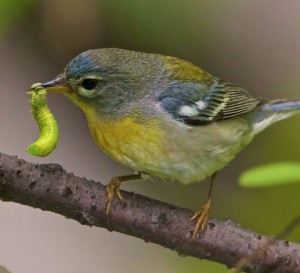 What’s a forest without the chatter of songbirds, or a pond without a curmudgeonly duck or two? Tom Andres, an Honorary Research Associate at the NYBG, won’t even consider the possibility. He’s too busy snapping pictures of our avian population.
What’s a forest without the chatter of songbirds, or a pond without a curmudgeonly duck or two? Tom Andres, an Honorary Research Associate at the NYBG, won’t even consider the possibility. He’s too busy snapping pictures of our avian population.
It’s no great secret that The New York Botanical Garden is a northern birder’s paradise, home to owls, hawks, herons, and woodpeckers. Debbie Becker’s Saturday Bird Walks remain a staple at the Garden, now over 25 years since she began guiding groups of amateur and veteran birdwatchers alike through our 250-acre landscape. Even so, populations change with the seasons–migrants flood the Garden with song and color one week, only to disappear the next.
Tom doesn’t let the fickle nature of the birder’s obsession hamper his photography, much less his fascination. “The Garden plays an important role for feathered visitors,” he writes, “especially as a refueling point during migration season.” The Bronx River Corridor–winding through the Garden–is a major draw for neotropical birds migrating toward northern breeding grounds, or heading south for warmer climates. This explains the sudden influx of loud and bright warblers arriving early in spring, making a much-needed pit stop before they move on.
Posted in Around the Garden, Photography, Wildlife on May 31 2012, by Matt Newman
Look to have a bird-brained afternoon as we set aside this beautiful Thursday to celebrate the treetop tweeters of The New York Botanical Garden! We’re flora people, yes, but there’s a majesty (and, at times, comedy) to the diverse fauna of the Garden. Nothing speaks of elegance and grace quite like a juvenile Red-tailed Hawk fumbling its lunch all over Tulip Tree Allée.
If you’re looking to get better acquainted with our feathered friends, stop by on Saturday mornings for the weekly Bird Walk with resident expert Debbie Becker! Binoculars, cameras, and gasps of awe welcome.
Photo by Pat Gonzalez
Posted in Around the Garden on April 27 2012, by Ann Rafalko
 The Antique Garden Furniture Show and Sale is celebrating 20 years of fine garden antiques this weekend, and the dealers have pulled out all the stops. I just got back from taking a walk around, camera in-hand, and I noticed a few really cool trends. While dogs and bunnies and horses are all present in myriad materials, there’s a new hot animal on the scene this year: birds. But not just any old birds (and I’m most definitely not talking about pink plastic flamingos from Leominster, Ma., though flamingos have flocked to a few booths), these are avian exotics, with a few domestic foul thrown in for good measure.
The Antique Garden Furniture Show and Sale is celebrating 20 years of fine garden antiques this weekend, and the dealers have pulled out all the stops. I just got back from taking a walk around, camera in-hand, and I noticed a few really cool trends. While dogs and bunnies and horses are all present in myriad materials, there’s a new hot animal on the scene this year: birds. But not just any old birds (and I’m most definitely not talking about pink plastic flamingos from Leominster, Ma., though flamingos have flocked to a few booths), these are avian exotics, with a few domestic foul thrown in for good measure.
Posted in Adult Education, Learning Experiences, People, Wildlife on February 9 2012, by Joyce Newman
Meet Doug Tallamy, an expert on the importance of native plants in our landscape and how to care for them — Thursday, February 16, 10 a.m. to 12 p.m.
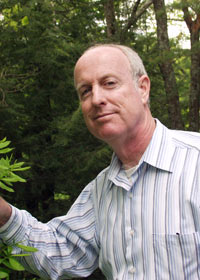
Doug Tallamy knows how important a diverse native plant community is for other living creatures, especially insects. He has devoted much of his career to understanding the many ways insects interact with plants, creating essential food webs without which our ecosystems would fail.
His award-winning book and website, Bringing Nature Home, is a call to action for gardeners across the country to use native plants to sustain wildlife, promote biodiversity, and protect our ecosystems.
In his book, Tallamy recounts his own “epiphany” when his family moved to 10 acres in southeastern Pennsylvania, an area “farmed for centuries before being subdivided and sold.” He discovered that “at least 35% of the vegetation on our property consisted of aggressive plant species from other continents that were rapidly replacing what native plants we did have.” And he noticed something else: the alien plants on the property, such as the Norway maples and the mile-a-minute weeds, had “very little or no leaf damage from insects.”